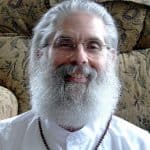Over forty years ago I received some sage advice that, at the time, seemed of little value. But as my meditation practice deepened, and my ability to “see” and understand grew, that counsel proved to be profound. “Nothing is as it appears,” I was told. It was exactly the same observation made by 17th century German writer and philosopher Johann Wolfgang von Goethe: “We don’t know what we see; we see what we know.” In other words, our unconscious concepts determine our conscious perceptions. In everyday life we don’t really experience the world, we experience our mind. And because so many of our stored, unconscious concepts are neither true nor valid, the perceptions the mind makes and actions the body takes often lead to dis-ease and pain.
Historically, the importance of our attitude toward concepts has been recognized since ancient times. In the Book of Genesis the Hebrew Torah points out that, “God formed every beast of the field and every bird of the heavens and brought them to the man to see what he would call them. And whatever the man called every living creature, that was its name.” In the first century AD the Greek philosopher Epictetus observed, “Men are not disturbed by things, but by the views they take of them.” In the play Hamlet, William Shakespeare (c. 1602) made the bold observation, “There’s nothing either good or bad, but thinking makes it so.”
It might seem cruel and unfair, but just as a puppeteer (called a manipulator) controls a marionette from above the stage using wires or strings, our unconscious habits and concepts enslave each of us to certain habitual thoughts, words and deeds. In fact, according to stem cell biologist and bestselling author of The Biology of Belief, Bruce Lipton, PhD, human beings operate 95 percent of the time from unconscious programming! And this unconscious programming,
samskaras in Sanskrit, is, in Lipton’s estimation, a million times more powerful than good intentions.
To understand how concepts and habits are formed, it’s helpful to know that the conscious, discriminating portion of the human brain doesn’t become fully functional until the age of six. Newborns and young children are observing their environment just like a television camera––and recording everything in the unconscious portion of the mind. In this way children use their parents as teachers and software programmers, gathering unconscious, conceptual data in their attempt to find happiness, health and security in this new, strange and wondrous world in which they find themselves.
Lipton explains that, “Within a couple of days after birth children begin to recognize their parents’ faces. Within the first couple of weeks, they learn if a parent’s face is happy and secure or scared and afraid. Ever after, any time children have an issue of concern or come across something new in the environment, they instinctively look at mother or father to observe the expression chiseled on their face. If a child is presented with some potential danger and the parent’s face reflects worry or fright, the child will likely avoid the encounter. If the parent’s facial expression appears happy and smiling––conveying safety––the child will be more inclined to experiment; to play with the new relationship at hand.”
Through this process children observe, gauge and ultimately perceive the world through their parents’ conceptual lenses. Intimate encounters with parents give children basic concepts and build habits of what to do and what not to do. This knowledge does not come from personal experience, but rather from observing and downloading––for better or worse––the habits and experiences (the “sins of the father”) modeled by their parents. Relying on that already installed software, we begin to adopt a variety of concepts modeled for us by individual and cultural authority figures including friends, clergy, teachers and celebrities. Every concept that we believe is important to our self-preservation is ultimately stored in the unconscious mind.
All concepts are forms of shorthand. They represent a mental combination of similar objects, events and people that we use to remember and understand what things are, what they mean, and what categories or groups they belong to. For example, if someone asks you to “think of a car,” the concept, “car” will evoke some specific ideas and memories about what a car is; what its characteristics are and how you feel about that car. Does your concept of a car have black tires or white walls, two doors or four doors? Is it red, white, black, or some other color?
Some erroneous concepts we commonly use in everyday language may not be true, but they are also not really injurious. They are merely innocent societal conveniences for the sake of conversation. For instance, we all believe that the sun rises in the east and sets in the west. But once we critically examine such a concept, we realize that the sun never does rise in the east nor set in the west. Why? Because the sun never rises nor sets at all. The rotation of the earth produces the illusion of sunrise and sunset.
In the decision making process, before we ever take an action or speak a word, concepts help us define what is relevant and irrelevant. When a concept reprises a memory of pleasure and security, we tend to like it and seek to serve it. When a concept reprises a memory of pain and insecurity, we most often dislike it enough that we seek to avoid serving it. And in order for a concept to be most beneficial, it must be relevant to our unique personal needs and purpose in life. For someone who doesn’t know how to read music, the concepts contained in a sheet of music would be useless. They would only register as a bunch of lines, dots, dashes and other symbols that have no real meaning. But a musician would be able to hear notes, chords, tempos, melodies and harmonies. For a non-musical person, sheet music concepts are worthless, but for a musician, the notations represent music. Similarly, if someone placed a car part in front of you, you might only see “a car part,” whereas a mechanic would be able to see an intake manifold, a water pump or a ball joint. You would “see” what you know––a car part––while the mechanic would see what he knows: a water pump. A very experienced mechanic might even see something more specific, like a water pump from a particular make, model and year of car.
Whenever we blindly accept, adopt and employ concepts offered by other people and the prevailing culture without our own critical examination, they can become dangerous and even life-threatening to our personal well being and all our relationships. When we constantly use faulty concepts to perceive a world that is constantly changing––including our own body and mind––it is impossible to make reliable, health-affirming choices.
Meditation is a journey without movement. When we learn to concentrate exclusively on the mantra, the mantra can guide the mind beyond the boundaries of transitory concepts, thoughts and feelings. Then as the mind becomes increasingly still, we inherit the rarest of all human treasures––an intimate glimpse into the ocean of peace, happiness, bliss, wisdom, discrimination and love within us––that is us––having a human experience. This profound encounter of consciousness observing consciousness––free of concepts––provides a meditator the impetus and courage to examine, question, refine and consciously change the concepts used in daily life.
In the Bhagavad Gita, Arjuna (who represents the personality enslaved to inappropriate concepts) asks this penetrating question of Krishna (who represents Supreme Wisdom): “Why do we human beings take actions that cause us so much pain and suffering? What power moves us, even against our will, as if forcing us?” As Arjuna broods on his own inability to take skillful action, Krishna answers the poignant question with words that are as relevant today as they were thousands of years ago. Just as marionettes are manipulated by the puppeteer, he says, every human being sometimes feels like a puppet whose strings are pulled by powerful concepts hidden below the surface level of the conscious mind.
To help rectify this human condition, philosopher and poet William Blake wrote in The Marriage of Heaven and Hell, “If the doors of perception were cleansed, every thing would appear to man as it is––Infinite. But since man has closed himself up, he sees all things through narrow chinks of his cavern.” The pain we experience when serving ill-suited concepts is a messenger inviting us to embark on our own personal hero’s journey. Once we accept this invitation, all those unexamined, unconscious concepts that skew our perceptions, diminish our problem-solving capacity, restrict our freedom of action and weaken the body’s immune system become the dragons we must slay in battle.
For that momentous effort, meditation and its allied disciplines provides the precise methodology for becoming the hero or heroine of our own life’s story. But meditation concepts are not offered as dogma or tenets of faith. They are part of a scientific hypothesis that you can test––if you have the daring and determination needed to pursue this course of investigation. For thousands of years, meditation has been the go-to science for knowing, understanding and analyzing our internal states and for optimizing our personal relationships in the world. By examining your concepts, which will present themselves one by one when you adhere to a daily meditation practice, you too can effectively cleanse the windows of your perception. It is an experience that has the power to revolutionize your vision of the universe and bring profound changes in your character, conduct, and consciousness––changes that will leave a positive mark on everything you do and deeply influence everyone you come in contact with.
About the author

Leonard Perlmutter (Ram Lev)
Leonard is an American spiritual teacher, a direct disciple of medical pioneer Swami Rama of the Himalayas, and a living link to the world’s oldest health and wisdom spiritual tradition. A noted educator, philosopher and Yoga Scientist, Leonard is the founder of the American Meditation Institute, developer the AMI Foundation Course curriculum, and originator of National Conscience Month. He is the author of the award-winning books The Heart and Science of Yoga and YOUR CONSCIENCE, and the Mind/Body/Spirit Journal, Transformation. A rare and gifted teacher, Leonard’s writings and classes are enlivened by his inspiring enthusiasm, vast experience, wisdom, humor and a clear, practical teaching style. Leonard has presented courses at the M.D. Anderson Cancer Center, numerous medical colleges, Kaiser Permanente, the Commonwealth Club of California, the U. S. Military Academy at West Point and The New York Times Yoga Forum with Dean Ornish MD.

